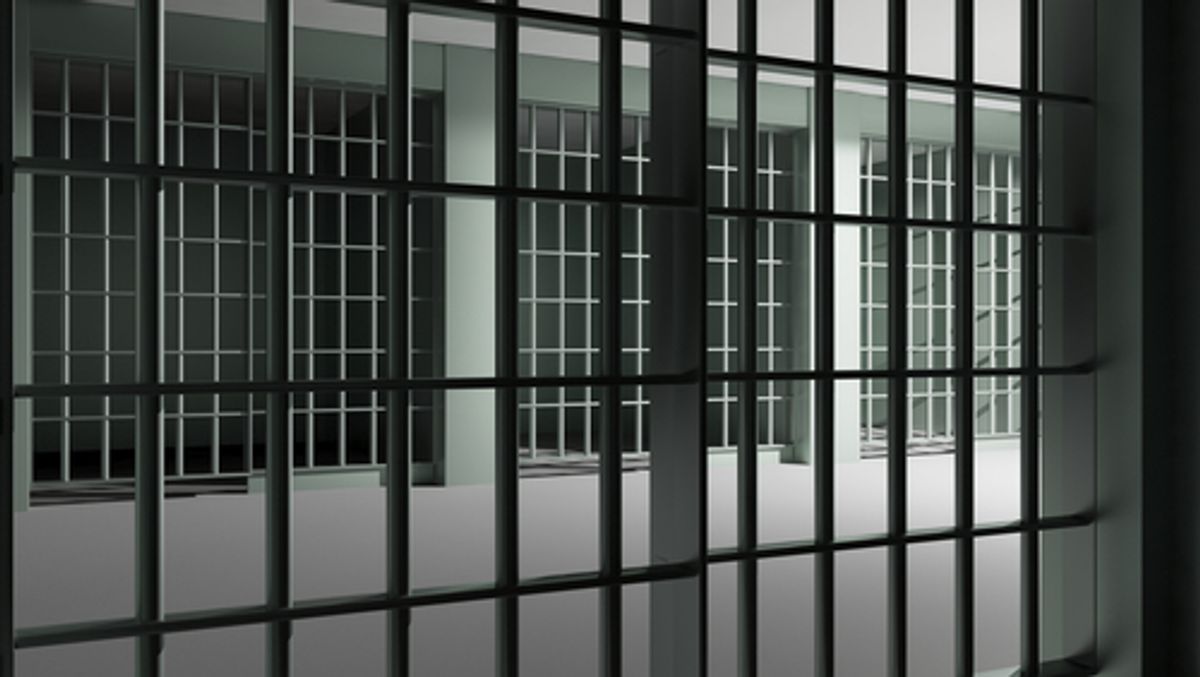Human Rights Watch Thursday published its annual World Report, in which it lays out a pointed critique of the U.S. prison system. The enormous prison population -- the largest in the world at 1.6million -- "partly reflects harsh sentencing practices contrary to international law," notes the report.
The 2013 World Report, a 665-page tome which assesses human rights progress in the past year in 90 countries, highlights particular issues undergirding the U.S.'s blighted carceral system. It notes that "practices contrary to human rights principles, such as the death penalty, juvenile life-without-parole sentences, and solitary confinement are common and often marked by racial disparities." Via HRW:
Research in 2012 found that the massive over-incarceration includes a growing number of elderly people whom prisons are ill-equipped to handle, and an estimated 93,000 youth under age 18 in adult jails and another 2,200 in adult prisons. Hundreds of children are subjected to solitary confinement. Racial and ethnic minorities remain disproportionately represented in the prison population.
HRW cite statistics often used to show racial disparities in the U.S. prison system. For example, while whites, African Americans and Latinos have comparable rates of drug use, African Americans are arrested for drug offenses, including possession, at three times the rate of white men.
“The United States has shown little interest in tackling abusive practices that have contributed to the country’s huge prison population,” said Maria McFarland, deputy U.S. program director at Human Rights Watch. “Unfortunately, it is society’s most vulnerable – racial and ethnic minorities, low-income people, immigrants, children, and the elderly – who are most likely to suffer from injustices in the criminal justice system.”
Although noting some progress in 2012 (both D.C. and Connecticut joined the ranks of 16 states to have abolished the death penalty), HRW also stressed continuing injustices in U.S. immigration policies, labor issues and treatment of minorities, women, the disabled and HIV positive individuals. The report was particularly critical when reviewing the U.S.'s counterterrorism policies. The NGO noted in a statement:
Both the Obama administration and Congress supported abusive counterterrorism laws and policies, including detention without charge at Guantanamo Bay, restrictions on the transfer of detainees held there, and prosecutions in a fundamentally flawed military commission system. Attacks by US aerial drones were carried out in Pakistan, Somalia, Yemen, and elsewhere, with important legal questions about the attacks remaining unanswered.
The administration has taken no steps toward accountability for torture and other abuses committed by US officials in the so-called “war on terror,” and a Justice Department criminal investigation into detainee abuse concluded without recommending any charges. The Senate Select Committee on Intelligence completed a more than 6,000-page report detailing the CIA’s rendition, detention, and interrogation program, but has yet to seek the report’s declassification so it can be released to the public.
The World Report explicitly mentions Obama's signing of the NDAA in 2011 (an act he repeated this year), noting, "The act codified the existing executive practice of detaining terrorism suspects indefinitely without charge, and required that certain terrorism suspects be initially detained by the military if captured inside the U.S.."
Next week, the lawsuit against Obama over the NDAA's definite detention provision will be back in federal court as plaintiffs including Chris Hedges, Daniel Ellsberg and Noam Chomsky seek an injunction prohibiting indefinite detention of civilians without charge or trial.
Comments from HRW's McFarland point out what's at stake for the president here: “The Obama administration has a chance in its second term to develop with Congress a real plan for closing Guantanamo and definitively ending abusive counterterrorism practices,” McFarland said. “A failure to do so puts Obama at risk of going down in history as the president who made indefinite detention without trial a permanent part of U.S. law.”



Shares